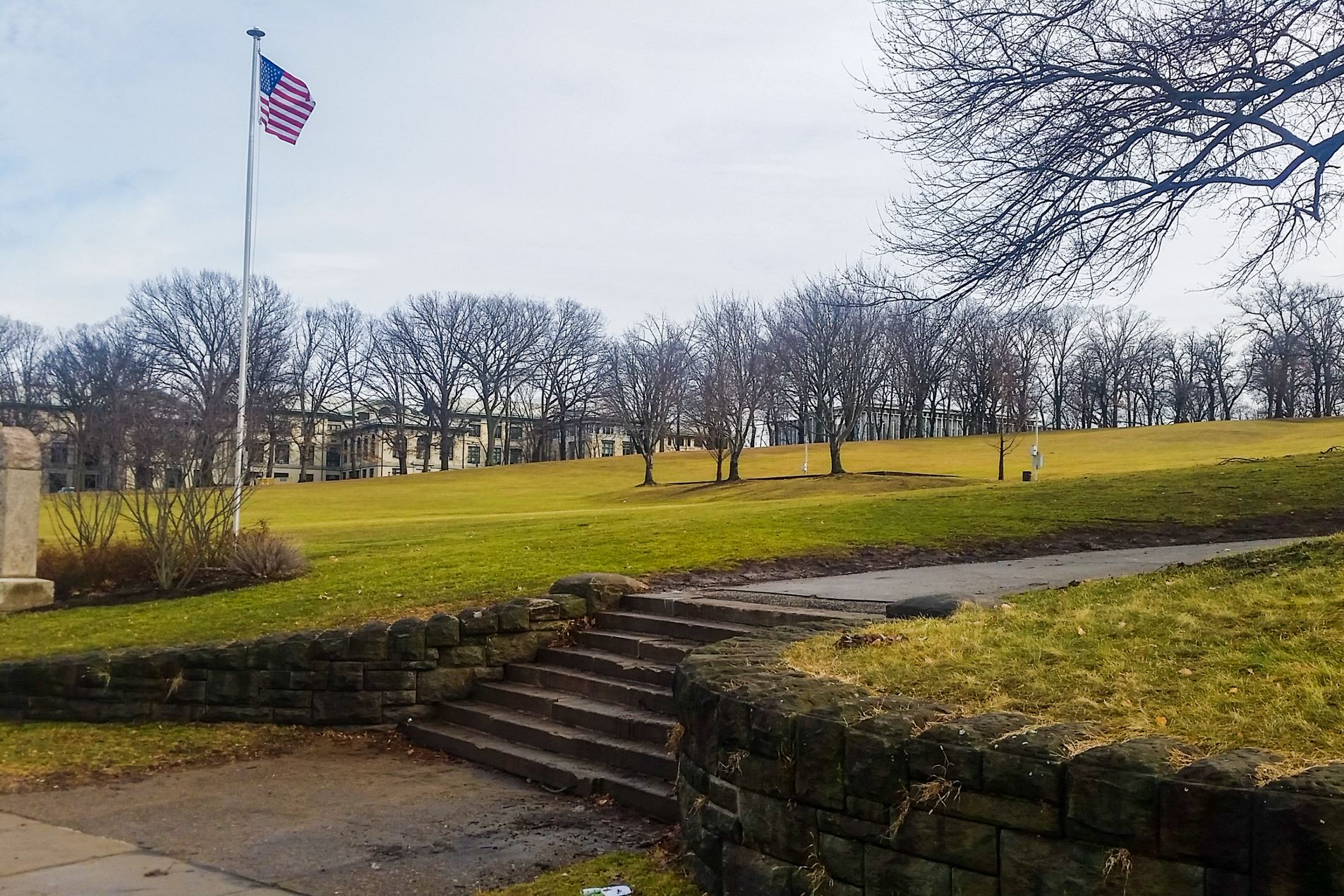Flagstaff Hill restoration begins in Schenley Park
The Pittsburgh Parks Conservancy today announced it will soon break ground on its latest restoration project on Flagstaff Hill in Schenley Park with an overall goal to preserve the site’s historic integrity, improve its ecological health, and increase its use.
The popular landmark, directly opposite Phipps Conservatory and Botanical Gardens, attracts thousands of visitors annually who enjoy its panoramic views of the Oakland neighborhood and city skyline.
The first step of the project is restoring the historic hand-hewn stone entry steps, retaining walls, and the overlooking terrace. Following the restoration of the historic masonry walls and stairs, the project will also address pedestrian barriers by reconstructing the dilapidated main path connecting the east and west entrances, where the Conservancy will soon create new gardens.
The new entry gardens will frame the east and west park entrances using a sustainable native plant palette. In addition, bioswales and green infrastructure, and a reduction in impervious paving will help handle stormwater runoff and mitigate erosion issues that have plagued the site.
“Pittsburgh’s ever-changing landscape faces many challenges,” Brandon Riley, Pittsburgh Parks Conservancy Capital Projects Manager explained. “This project will not only address cosmetic issues that impact the park but will also improve the overall ecology through the installation of green materials.”
The project also includes the installation of new park benches along the connecting pathways, so visitors can enjoy a moment of relaxation as they enjoy the stunning views from Flagstaff Hill. Additionally, the restored terrace will be repaved with permeable pavers to improve its use as a space for individuals and small groups.
“It’s always exciting to begin a new project that we know will provide a positive impact on thousands of park visitors,” Brandon explained about the nearly $900,000 park improvement project. “Flagstaff Hill is the definition of a Pittsburgh gem. The views alone are second to none and truly make this park site such a special place for Pittsburghers. We are excited to begin the work to restore this space to its fullest potential.”
Pa. Sen. Jay Costa further underscored the importance of restoring this urban greenspace.
“Space for outdoor recreation, like Schenley Park, are so important for our health and wellness and community,” Senator Costa explained. “I'm pleased to see updates and upgrades planned for the Park, and always happy to support projects like this for state level funding. These improvements will be to all of our benefit in the years to come as Schenley Park remains an asset in our neighborhood.”
Future phases of the project will include a reinterpretation of the 1930’s era azalea garden that used to occupy the hillside. A new “woodland garden” will be planted using native plant species, bringing back the essence of the historic landscape with ecological sensitivity.
“As Pittsburghers, we are very familiar with Flagstaff Hill,” Jim Delaney, a benefactor of the Flagstaff Hill restoration project explained. “Many people do not know that it was once tiered with stunning azalea gardens. I appreciate that the Parks Conservancy seeks to restore historic plantings, while honoring the current use of the lawn space.”
In addition, the Conservancy will continue to implement an ecological restoration planting program, ensuring the environmental health of one of Schenley Park’s oldest tree stands for generations to come.
“From college students enjoying a break from their classes to park lovers celebrating their engagement to kids enjoying a game of frisbee, Flagstaff Hill is where memories are made every day,” Brandon explained. “I’m confident this park improvement project will make this popular space accessible and allow Pittsburghers to create more memories than ever before.”
Visit www.pittsburghparks.org/flagstaff-hill-woodland-garden to learn more about this park improvement project.

